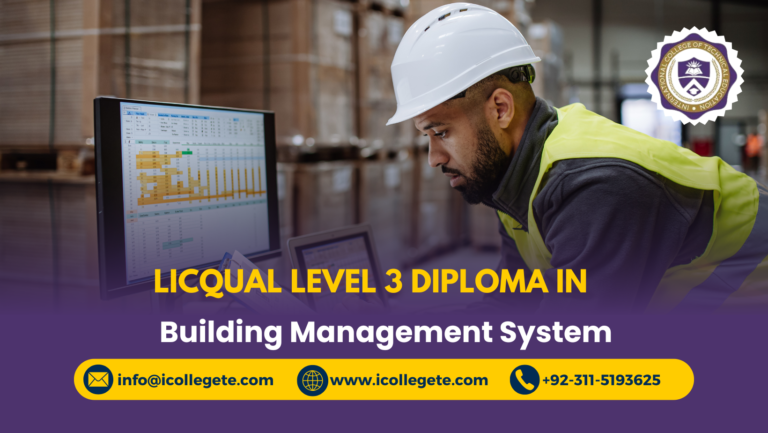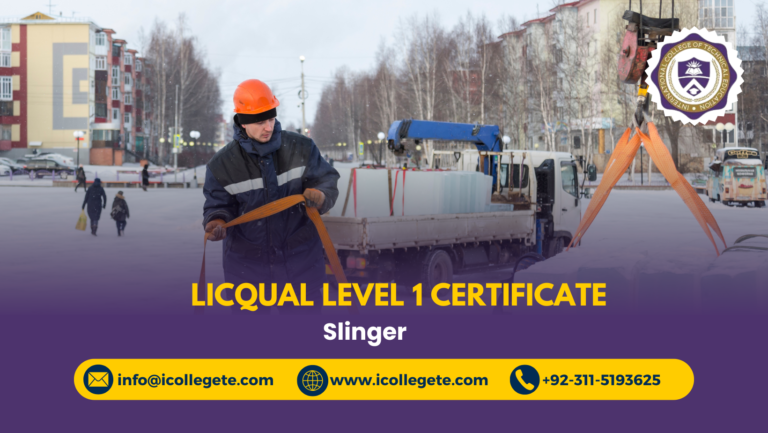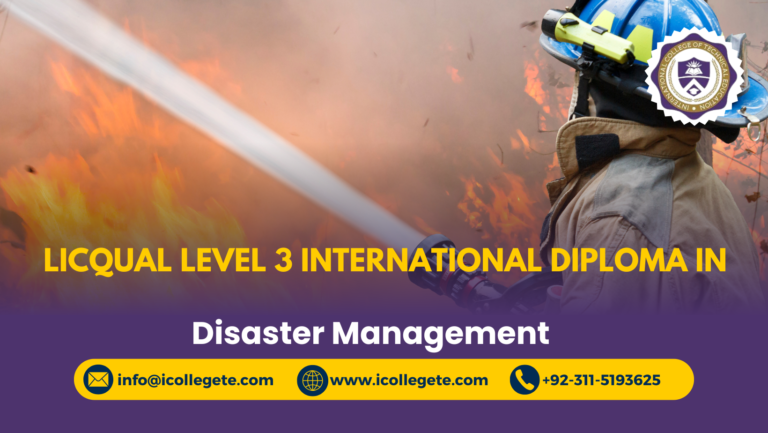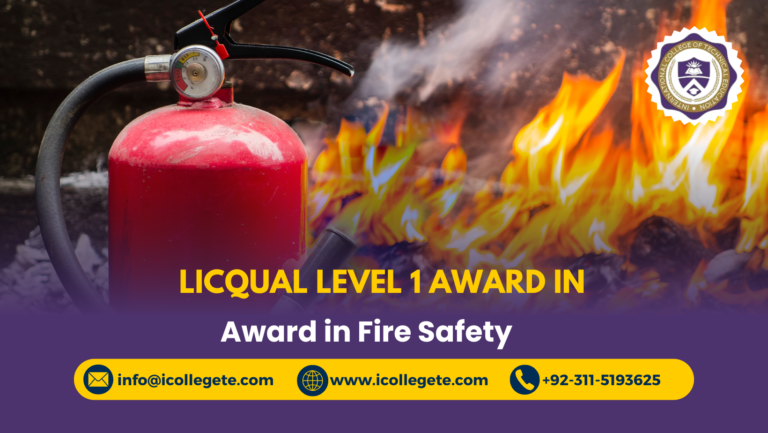In the food industry, contamination is a major concern that can lead to severe health risks and legal consequences. To mitigate these risks and ensure the safety of food products, implementing robust food safety systems like HACCP (Hazard Analysis Critical Control Point) is crucial. One such globally recognized qualification is the LICQual Certificate in HACCP Food Contamination, which is designed to help professionals understand and manage food contamination risks effectively.
This UK-based certification is fully assignment-based and internationally accepted, making it an ideal choice for food safety professionals worldwide. In this blog post, we will explore the course in detail, including its structure, benefits, and how it can enhance your career in the food industry.
The LICQual Certificate in HACCP Food Contamination provides an in-depth understanding of how to identify, manage, and prevent food contamination at critical stages in the food production process. This certification is ideal for individuals working in the food industry who need to apply HACCP principles to ensure food safety and protect consumer health. The course is UK-based and globally accepted, offering professionals the opportunity to develop key skills to manage contamination risks effectively.
As an assignment-based qualification, this course focuses on practical, real-world application of HACCP principles rather than relying on traditional examinations. This hands-on approach helps learners gain a deeper understanding of how to control contamination risks and maintain the highest standards of food safety in their workplace.
Course Overview
The LICQual Certificate in HACCP Food Contamination is tailored for individuals working in various sectors of the food industry, including food manufacturing, production, and processing. It is specifically designed to address food contamination issues and provide learners with the knowledge and skills to mitigate these risks through the application of HACCP.
The course focuses on contamination prevention at all stages of food production, from raw material handling to the final consumer product. This qualification ensures that learners are equipped to handle food contamination risks with precision, ensuring that food products meet the highest standards of safety and quality.
Key Features of the Course:
- UK-based Certification: Recognized globally across the food industry.
- Assignment-Based Assessment: Focuses on real-world application rather than traditional exams.
- Globally Acceptable: Suitable for professionals worldwide looking to advance their careers in food safety.
- Flexible Learning: Allows learners to complete the course at their own pace with expert tutor support.
Course Study Units
The LICQual Certificate in HACCP Food Contamination consists of several key study units designed to provide a comprehensive understanding of food contamination risks and the HACCP system. The key study units include:
- Introduction to HACCP and Food Contamination
- The importance of food safety in preventing contamination.
- Overview of HACCP principles and their application in food manufacturing.
- Types of food contamination: physical, chemical, and microbiological.
- Identifying Food Contamination Hazards
- Hazard analysis techniques.
- Identifying critical contamination points in the food production process.
- Assessing the risks of contamination across different stages of production.
- Critical Control Points (CCPs) and Contamination Control
- Definition and role of CCPs in contamination control.
- Methods for monitoring and controlling contamination at CCPs.
- Corrective actions to take when contamination risks are identified.
- Preventative Measures and Contamination Management
- Establishing preventive controls to avoid contamination.
- Best practices in handling raw materials, storage, and processing to prevent contamination.
- Contamination risk management in packaging and transportation.
- Verification and Validation of HACCP Systems
- Verifying the effectiveness of contamination prevention measures.
- Conducting regular reviews and audits to ensure food safety standards.
- Validating HACCP systems to maintain compliance with international food safety standards.
- Record-Keeping and Documentation for HACCP Compliance
- The importance of maintaining accurate records in food safety.
- Best practices in documentation and monitoring.
- Ensuring proper traceability for food products.
Learning Outcomes
Upon successful completion of the LICQual Certificate in HACCP Food Contamination, students will be able to:
- Identify and assess food contamination hazards at various stages of food production.
- Implement effective HACCP systems to control contamination risks and ensure food safety.
- Apply the principles of HACCP to identify critical control points (CCPs) and manage contamination effectively.
- Monitor and manage contamination risks through preventive controls and corrective actions.
- Verify and validate HACCP systems, ensuring compliance with food safety regulations.
- Maintain comprehensive food safety records to support HACCP implementation and audits.
Course Benefits
The LICQual Certificate in HACCP Food Contamination offers numerous advantages for professionals in the food industry, including:
- Global Recognition: This certification is internationally recognized, enhancing your professional standing in the global food safety industry.
- Career Advancement: Food safety expertise is highly valued in the food manufacturing and processing sectors, and this qualification will improve your chances of career progression in quality assurance, food safety management, and other related fields.
- Practical Knowledge: With an assignment-based structure, the course focuses on the practical application of HACCP, ensuring you can immediately implement the knowledge in your workplace to prevent contamination and improve food safety.
- Flexible Learning: The course is designed to be flexible, allowing you to complete it at your own pace while receiving support from experienced tutors. This makes it ideal for busy professionals.
- Improved Food Safety Practices: By completing this course, you will gain the knowledge needed to develop, implement, and manage effective HACCP systems that prevent food contamination, leading to safer food products and increased consumer trust.
- Reduced Risks of Contamination: With a focus on food contamination management, the course ensures that you are well-equipped to handle contamination risks, reducing the potential for costly recalls and regulatory violations.
Who Can Enroll in This Course?
The LICQual Certificate in HACCP Food Contamination is designed for a wide range of professionals working in the food industry. Ideal candidates for this course include:
- Food Processors and Manufacturers: Individuals who are responsible for ensuring that food products are safe for consumption and meet industry standards for food safety.
- Food Safety Managers: Professionals responsible for implementing and overseeing food safety practices in food production environments.
- Quality Assurance and Control Professionals: Those involved in maintaining food safety standards and ensuring that products comply with regulatory requirements.
- Food Safety Auditors: Individuals interested in auditing food safety systems and ensuring compliance with HACCP principles.
- Food Industry Entrepreneurs: Small business owners in the food sector who wish to ensure that their products are safe and compliant with food safety standards.
- Aspiring Food Safety Professionals: Anyone looking to start a career in food safety or food manufacturing.
Future Progression for This Course
After completing the LICQual Certificate in HACCP Food Contamination, there are numerous career progression opportunities, including:
- Advanced HACCP Certifications: Graduates can move on to higher-level HACCP certifications (e.g., Level 3 or Level 4 HACCP) to further expand their knowledge and qualifications in food safety management.
- Food Safety Management Systems (FSMS): Graduates can pursue certifications in other global food safety systems such as ISO 22000 or BRCGS, which complement the skills learned in the HACCP course.
- Consultancy and Auditing Roles: With the practical knowledge gained from this course, you may pursue a career as a food safety consultant or an independent auditor, helping businesses develop and maintain HACCP systems.
- Leadership Roles in Food Safety: This qualification can help you move into senior management roles within the food safety and quality assurance departments of large food manufacturing companies.
- Ongoing Professional Development: The food safety landscape is constantly evolving, and this course serves as a foundation for continuous learning and professional development in food safety and quality control.
The LICQual Certificate in HACCP Food Contamination is an essential qualification for anyone working in the food manufacturing or processing industries. With its global recognition, assignment-based approach, and focus on practical, real-world application, this certification equips professionals with the tools they need to manage food contamination risks effectively. By enrolling in this course, you will enhance your knowledge, improve food safety practices, and advance your career in the food industry.
Enroll today to take the first step toward becoming a certified HACCP expert and ensuring the highest standards of food safety in your workplace!






